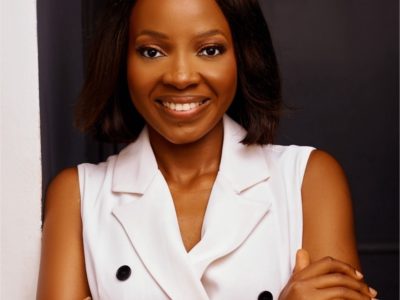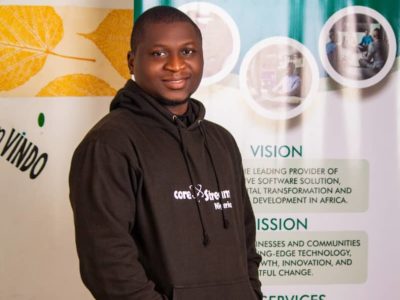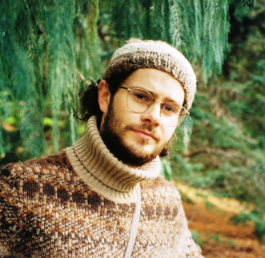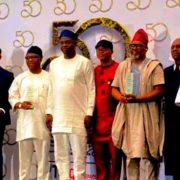Austin Okere is founder and Entrepreneur-in-Residence at the Ausso Leadership Academy (ALA). He has over 30 years industry experience as a Systems Analyst, and Visionary Corporate Strategist. Inside the ALA space in Lekki, Lagos, Nigeria, Okere, a member of the World Economic Forum Business Council on Innovation and Intrapreneurship, spoke with IT Edge News, Olusegun Oruame and Nwakaego Alajemba, on the motivation for the leadership academy. “ALA is more of a sustainable social impact investment..the motive is not profit. The motive is shared prosperity, sustainable shared prosperity,” said Okere as he shared his vision and ultimate objective for ALA. Okere spoke on why CWG has prevailed and how the company has evolved to be both profitable and sustainable; he argued that indigenous tech companies die because they have poor knowledge of the market and hardly focus on creating solutions that reflect market needs and dynamics. Platform is the future of technology, said Okere. Platform owners will determine market behavior but even then, disruptions not necessarily regulations will, ultimately, decide the fate of unintended tech monopolies. As long as disruptions keep happening, monopolies will have no permanent reign.
Austin Okere:“Is entrepreneurship a nature or is it nurtured? Is leadership a nature or is it nurtured? There is a framework for leadership and for entrepreneurship. In so far as you have that framework, there is every chance that you will succeed as well as those that are naturally gifted if you imbibe that framework.”
It’s been a while since you left the Computer Warehouse Group (CWG) Plc as the CEO, now you are the Executive Vice Chairman. It is great speaking with you inside the Ausso Leadership Academy (ALA). Firstly, what informs your setting up of ALA and do you believe leadership can be taught?
On what motivated me in setting up this: first of all, there is a big dearth of mentorship. People want to do well, they are setup but there is nobody holding their hands by way of experience in terms of how to do well and when they don’t succeed, they get frustrated and they leave for Canada, Australia and UK to start all over and that is the human capital that we need here. Here, in our context inside the ALA, we focus on how we can help them to succeed. If they succeed, we are going to have shared prosperity because it’s only by mentoring business people and organizations to geometrically scale their businesses that they can optimize the jobs they create. If they optimize the jobs they create, then we are going to have sustainable shared prosperity. So my own idea is how do we create that shared prosperity for all of us. So yes my previous first coming was for a corporate business that was solving problems but significantly profit motivated. Here, it is more of a sustainable social impact investment, I’m happy if it breaks even, the motive is not profit. The motive is shared prosperity, sustainable shared prosperity.
What are the key focuses, the key objectives or key goals for ALA?
At the end of the day, if you look at what is happening in Silicon Valley they succeed because the people that get up, they send elevator back by way of mentorship to pull others up, they even invest in each other’s companies. Then people will ask: Is entrepreneurship a nature or is it nurtured? Is leadership a nature or is it nurtured? And what we say is that there is a framework for leadership and for entrepreneurship. That framework, we really don’t care whether it’s in your nature or you are not born with it. In so far as you have that framework, there is every chance that you will succeed as well as those that are naturally gifted if you imbibe that framework. The objective is to impact that framework into willing people, volunteers. So don’t say if you make first class, 2nd class upper, no, if you volunteer or you feel you want to launch a scalable business not a hobby. Or you are a corporate entity and you are a high performer and you want to set up to become an ED or MD or even to start and nurture a new department, then this is where you come.
The three modules that make up this framework are:
Finding my true north – finding my true north is about the purpose of your business. A lot of people don’t even know why they started business. If you ask them they will say I want to make money, I want to be my own boss. But making money is an outcome. It is a consequence of the value you are creating that people see. Apple is making money but it was from the purpose of creating value that Steve Jobs started Apple. Bill Gates today is giving away so much money, if that was his motivation for setting up Microsoft then he wouldn’t be giving it away. He set up Microsoft because he wanted to put a desktop on every table. He wanted everybody to be uplifted. And Apple said, we are setup to challenge the status quo. And how we challenge the status quo is to simplify everything. So they take less input, back it with technology and produce a great output. Now Apple has the iPhones that is a camera, a telephone, a music player, it could even be a radio, it could be a torch light, it could be all in one. And the whole essence is that, they were very clear on why they setup the company.
Let me cite an example: there is a story told about an army captain, he told his commander to go and capture a bridge, the commander went but the bridge has been blown off, so there was no bridge to capture. So he came back and reported that there was no bridge to capture. The same message was given to another commander to go and capture a bridge we need that bridge to move ammunitions and supplies to quell the war. He understood the impact so when he went and the bridge has been blown off he went his own way and captured another bridge. Then he came back and told his captain, that the bridge has been blown but you know what I have captured another bridge this one if we move like this and go a bit earlier we can still reach our target. So once you know why you are doing something, and when people join your organization and they know why the business exists and they know their own role in the value chain of what you are trying to do and they buy into that your mission, your organization is going places. So people have to know the reason why they set up a business.
The second is your vision. Typically you do your vision and say this is why I’m in business, you do your one year mission to reach that five year vision. These are the things I will do the first year. So that is what we teach in module one – which is finding my true nut.
“If you look at what is happening in Silicon Valley they succeed because the people that get up, they send elevator back by way of mentorship to pull others up, they even invest in each other’s companies.”
What are the next modules?
Module 2 is strategies for geometric growth. A lot people setup, they just go and meet a consultant please write a business plan for me. They will take that to the bank but may not get the loan. An Asian guy from China or Indian or wherever will take a business plan or module to the bank and get a loan. We may say he gets it because he’s a foreigner, no, he understands what he is saying; he understands the value proposition, he understands the target cost on it, he understands the partners that he needs in order to transfer that value proposition into customer space. He understands the customer relationship, how do I get my customer? Is it by email blast? Is it via social media or on one-on-one? He understands his delivery channels. What am I going to use to deliver? If it is food, is it motorcycle? If it’s an airline ticket, he can send it via email. He understands the things that are key; the things he has to perform within the organization and he understands the one he can outsource. Base on the activities he understands the key resources that he needs.
You don’t need everybody to make everything in your company, you don’t say that you need to plant a farm in order to run a restaurant. And don’t say Nigeria has 200 million people and if I get 10% I’m ok, that is about 20 million, but are they your customers? You have to pinpoint your customers through a process called customer discovery and then you look at the outcomes of the customer discovery: what are the competitors holding in terms of this customer space or are you creating an entirely new customer? Creating a new customer is called market creative innovation. That is a more effective way to succeed because you are not competing with anybody, you are creating your own market. While Coke is competing with Pepsi about who will drink their beverage, Indomie came and created a whole new market. They created a product that only requires you putting it in water and in two minutes, you are eating. So that’s what we teach them in Module 2. We teach them Strategies for Geometric Growth – SGG.
In Module 3, we teach them Business Structure Transformation and Innovation and Legacy which is a succession plan because one of the things that kill companies is that the leader/founder dies. This is because there is no plan for legacy, there is no plan for successor, the founder is an all powerful, all knowing person, he doesn’t respect any doctrine. The ideal situation is when a founder starts, he has all the power but as time goes on, the organization gains and the founder loses. There is a point of optimum inflation. The power that the founder wills is just governance to say this is how things are done here. If he wants to take money from the accounts department there will be a clear request, don’t just say madam go and collect fifty thousand naira for your hair dressing, the organization won’t give him if its mature, if its fragile then there is no governance and that is what kills most organization because the founder doesn’t give the power of governance to the organization. So we teach them in that segment about to re-imagine the workplace as greater than them. We teach them finance and non-finance and being able to read profit and loss, what are my breakeven because they don’t even know their breakeven, how much you need to sell a month to stay in business, we have to teach them that. We teach them cashflow because once you run out of money the game is up. So if you know you are going to run out of money in June by May, you have already started securing a loan or started collecting from people that owe you money. If you don’t, by June the business is in trouble. These are the things we teach and it’s a framework anybody can learn from. But the most important thing Ausso Leadership Academy does is that we are not using case studies of anybody’s business, it is your own business. Come day 1 with open mind, and as a plain sheet, by the time you are leaving, you have your own business module playbook that you are going to build. And when you take that to the bank, the chances are that 90% of the time because you develop it yourself you will be able to explain it and they will give you loan. You also meet you own networking of people from different background. They are your first market and they are the ones that will criticize your work.
The most important in our mentorship scheme is what we called the ALA Champions. The Champions are the people that are very successful in business. People like Aliko Dangote. People that have worked, not just anybody that has made money and you don’t know how they made their money. People that you can see where they have started and where they are, they will come and share with the delegates, their intelligence, the strategies that have worked for their businesses. When they leave here they become Business Gladiators.
Okere: “The ideal situation is when a founder starts, he has all the power but as time goes on, the organization gains and the founder loses…. What kills most organization [is] because the founder doesn’t give the power of governance to the organization.”
Looking at your background in 1993 when you started CWG, I always remember your testimony on the year that Computer Warehouse Group almost died and would never have become an entity. Why do indigenous IT businesses in Nigeria die?
First and foremost, you have to look at what I said about a crowded space, so whether it is an ISP remember the story of internet cyber-cafes, everybody went into it. Nobody knew their breakeven, nobody knew their cash flow, nobody knew their idea. One person would say this person has an internet café, let me also go and open one. Check out the internet café and networking IT businesses in those days, they were really doing the same thing. They were not IT companies, they were trading entities including CWG then. It was just that we were trading on IT commodities and systems. But trading on IT commodities and systems does not make you an IT company. If I sell fridges, I’m not a fridge manufacturing company. If I sell cars, I’m not a car manufacturing company, I’m a trader. In the same way if you sell IT products you are not an IT company and they were mistaking themselves to be IT companies.
If you want to now become an IT company, you have to take it hard, say at least you are not making this product but I can add value to this product to make it more productive. So I help you to install your product and I support it and I train more people. And I do some internal consulting for you on how to optimize your business process, so I tell you that you need to do product relation or you need to do service excellence or you need to do customer intimacy or you need to do cheaper pricing. These are the four modules of competition. Product relation is not in your hands because you are not the manufacturer of the product but service excellence is in your hands. So CWG was very clear when it wanted to be an IT company. We said we are going to shoulder the technology arms of businesses so they can focus on their own core business and we were very successful with MTN, in fact if you go into MTN today we have over 300 people there with MTN badges but they are CWG staff doing all technical stuff so that MTN can focus on getting the bandwidth to where it is needed. They are not disrupted by the OTTPs, Whatsapp and the rest of them. We do these things for bank also like deploying Finacle. We go to bank and say this is the way the bank of the future should look like don’t wait until you are extinct.
But what set us apart was what I called market creating innovation. When we buy computer products which is a bit part of what we do, we buy the products in parts, then we install and sell to customers. Let’s say we buy for a $1million and we sell for $1.2 million because we will make money. Now the sales was done in naira and by the time we are going to pay our supplier, the value of naira to dollar has shifted to the extent that even the $200, 000 we thought we are making is all gone into exchange loss because we traded in naira and we need to pay our suppliers in dollars. By the time we exchange the naira paid for the transactions into dollar, the equivalent is not $1.2 million or even $1. The real equivalent is now $800, 000 because of the exchange rate; and this happened over and over again, this is what happened to a lot of IT companies and they die.
And I was asking where NCS [Nigeria Computer Society] is. In Kenya, the original equipment manufacturers (OEMs) are accepting Kenya’s shillings so the exchange rate is not carried by me for somebody. No! Each of us bear it. In Nigeria, they are not even paying their own share of tax, so a local company bears the burden of the tax and he thinks he’s making money. Now, in that my $1.2million remember withholding tax is 10%. So they are going to take $120,000 as a withholding tax and I will never see that money, I’m left with the remaining money from where I have to pay for the exchange rate losses, I have to pay salaries, face my business as a trader as well, so I’m not going to make it. So we decided to remove ourselves from that. We are just a facilitator IT company to the manufacturer.
“There is a big dearth of mentorship. People want to do well, they are setup but there is nobody holding their hands by way of experience in terms of how to do well and when they don’t succeed, they get frustrated …. in ALA, we focus on how we can help them to succeed.”
So in a way CWG reworked itself?
We are now gone into platforms: platforms for internal revenue generation, platforms for payment, platforms for gaming and anything that people need to do. You know YouTube is a platform just to make and share video. If YouTube didn’t exist you have to have a studio to broadcast yourself. But today you can post something on YouTube and post it on Instagram and everybody will see it. That is the business that we are doing. We are into platforms, platforms for things that are necessary for our people. We have a platform for software for accounting for small businesses so they don’t have to go and buy Quickbook. It is called SMERP – just like SME and ERP together and it is so simple that you can use your phone to do the business and continue to accumulate the account so at the end of the day SMEs can see their PR, they can see their stock position. It’s as simple as that and that is what people need. People that are selling Sage are in trouble because once the SMEs know that they can use this platform and do their businesses they are not going to buy all those things again.
We also have a platform called bills and pay because when you pay your bills in the payment system, it doesn’t give you your pay. Now bills and pay enables the biller to send you a receipt on that platform all you do is to go to your bills and then pay and get a receipt with automatic tracking for you. You can say my bill is 23, 000 this month but I can only pay 10, 000 because I have to pay for PHCN too, the platform will tell you how much you have paid and how much is left, so it does all that for you. And you know how Nigeria is, who can remember all he has paid. So at the end of the day, we are more into platforms, we are more into market creative innovation so we are creating solutions for people that need them. To bring this home, women have two shoes on any day of the week, one to look tall in the office, the flat one to drive, walk or take transport and it’s a bit of inconvenience. Now, imagine you do a retractable heel where you push it in and drive and when you get to office you pull it out. It’s a good example of solving problems.
Do you foresee a time where platform owners control every aspect of the business and not those that create the content?
I think we are already at that stage because, think how powerful YouTube is, think how powerful Google is, these are platforms, think how powerful Facebook is. That wasn’t the intention but that has become an unintended outcome and many governments are worried, they summoned them, they warned them, they see that warning isn’t working, they begged them. So yes that is unintended consequences. But that should serve also as a warning because there was a time government was had monopoly. When you needed a phone you have to go to NITEL. The NITEL manager in any local government is even more important than the local government chairman, if you don’t know the NITEL manager, your line will not work and once you hear tossed, it is not that you owe money but know they have removed your cable and patch it to another person. So we have moved from one monopoly which was NITEL to monopolies.
Especially when it comes to content the content creators are not really in control as much as the platform owners. And the platform owners are sometimes brutal in terms of financial negotiations with the content owners one begins to wonder, is this not slavery.
“…the content creators are not really in control as much as the platform owners. And the platform owners are sometimes brutal in terms of financial negotiations with the content owners…”
Is there any way to disrupt platforms?
Let’s take our mind back to Standard Oil. Standard Oil was the biggest oil company, they were such a monopoly that the US government had to broke it into Exxon, Chevron, Mobil. All these big companies came from Standard Oil. Now in the case of financial system, particularly the case of banks, the banks were getting so big and pompous, and not even thinking about the customers or how to encourage banking system. Then government started encouraging fintech under the theme: “financial inclusion’ and things changed. Before, when you go to bank they will tell you if you don’t have N100, 000 or N10, 000, don’t come near us. Today, nobody bothers to even go to bank because there are alternatives. So there is a way in which the government can deliberately create a standard to nurture competition until they are big enough to go on or to force the banks or telcos to behave in a certain manner.
Remember how much we used spend to call USA, what happened after Whatsapp came into the market? International call rate dropped drastically because nobody uses it. The first instance is that if you buy your bandwidth you can control it but you can’t control how the telcos will charge you for calls and there is no monitoring to tell how the call you made is charged. But if you buy your bandwidth for N5, 000 monthly and make as many calls as you can once it finishes you can recharge, at least you can control that.
In another 10 years when you look back at ALA how do you want to count your blessings, what will give you a sense of fulfillment?
I believe in two things. I believe a candle reduces nothing by lighting other candles in fact; it will make the room brighter for all. Yes we prayed for success at CWG and despite obstacles, we have successes. But we can and should create many more CWGs. A billionaire to me is not someone who has a billion dollar in his account as assets. A billionaire to me is someone who has touched a billion people directly or indirectly. My setting up of Ausso Leadership Academy is to help to impact people – at least 200 businesses to be impacted in a year. Businesses create jobs including CWG Uganda – they are just 8 years.
So if you look at the impact, it’s huge. 200 businesses each year will resonate impact because I would like to leave my footprint on the sands of time as a man that came, he did not complain but did what he could in his own area of influence. This is my area of influence: entrepreneurship, leadership, business, education and spreading success. So I want people to say he came and helped to create sustainable shared prosperity for his people.
“Making money is an outcome. It is a consequence of the value you are creating that people see. Apple is making money but it was from the purpose of creating value that Steve Jobs started Apple. Bill Gates today is giving away so much money, if that was his motivation for setting up Microsoft then he wouldn’t be giving it away.”
Finally, some young Nigerians (entrepreneurs) see you as their role model, what are your words of encouragement to them?
Success is not a destination. I know they are hungry for success. Success is actually a journey and in that journey you have to prepare yourself. The three things I used as a guide for myself when I was in that stage is what I call the 3Ws. The first W is Waypower, when I say waypower it means show me the way. You need to learn the way. There is no pilot that flies from one airport to the other without knowing his flight part plan, no captain set sail without knowing the journey part. The way to know the way power is to first prepare and empower yourself. You probably need a Bsc in any courses that are very relevant to the jobs you are doing, those are all waypower. A lot of our people, some of them that even need a job they came they secure job ten years later they are still on that seat, they have not added and they have not subtracted, meanwhile they are getting dues and that’s what I called an I person. An I person just have that skill, that instinct but he has not improved and much of capacity required for growth has left him. Then you have a H person. A H person has 2 skills and a square person has 4 skills. You can go on to learn and improve your person,, you can go into TED talks and learn things. The rule is always try and learn something that can improve you.
The second W is Willpower – willpower is the ability to motivate yourself consistently through the four stages of engagement: rejection, tolerance, acceptance and desire. The first time I started sending material for ALA via email, people said who are you, why are you sending me materials. That is rejection stage. But you have to be persistently consistent or consistently persistent because some people that are rejected, statistics show that 90 percent of them give up. The 10 percent that refuse to give up go to become tolerated that is the second phase. And from being tolerated, people see the value you bring and it becomes accepted and from acceptance people will now ask where is this man, and that is desire.
So, wake up, build yourself through rejection to tolerance and to acceptance and desire.
The last W is wait-power – wait-power is power of patience. Farmers know this very well, Lagosians don’t know this. They go into a place, there is a queue, everybody goes to the front. A farmer knows he can plant cassava for three month and the yield can come In the other hand if he plants cocoa, he can wait for five years and that cocoa will feed him for life and cocoa is quoted in the commodities market and nobody is quoting cassava. So that is the power to wait. So for the young entrepreneurs I have these three words: WayPower, WillPower and WaitPower.


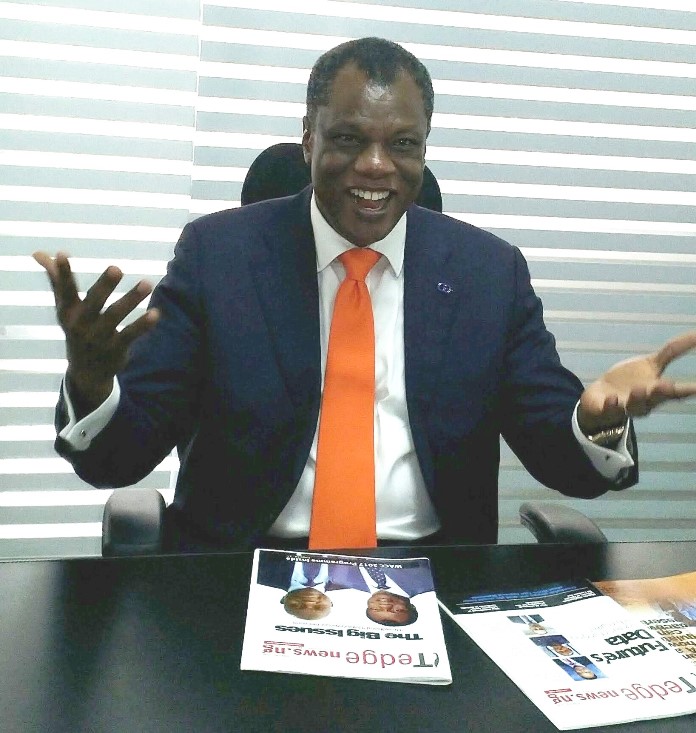
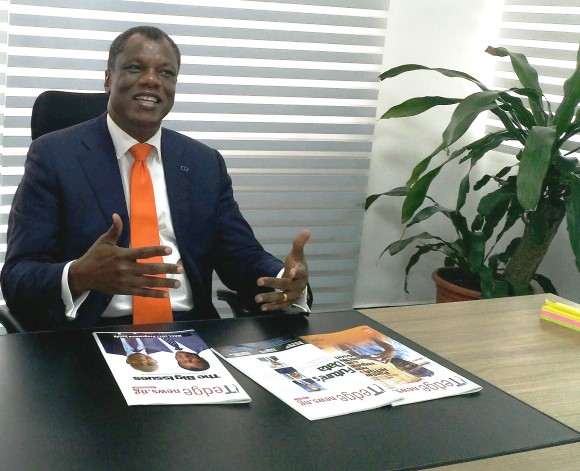


![Okere: “The ideal situation is when a founder starts, he has all the power but as time goes on, the organization gains and the founder loses…. What kills most organization [is] because the founder doesn’t give the power of governance to the organization.”](http://itedgenews.africa/wp-content/uploads/2019/02/Okere.jpg)
